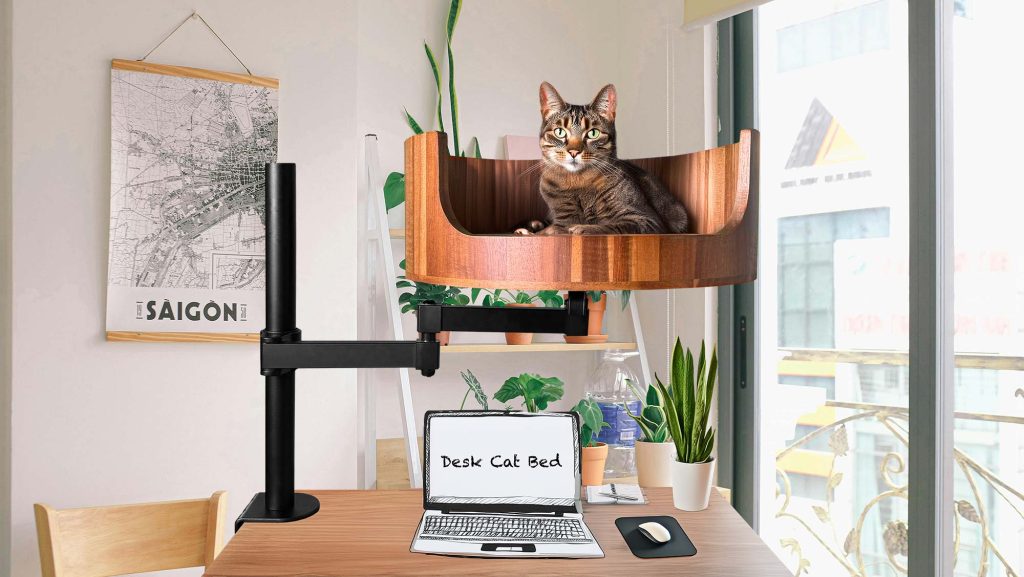Do you ever wonder why your cat meows loudly in the middle of the night, disturbing your sleep and leaving you feeling puzzled? Understanding feline behavior, especially when it comes to vocalizations like meowing, can shed light on these nighttime antics. Cats are known for their mysterious and sometimes unpredictable personalities, but there are reasons behind their meowing behavior that can help cat owners navigate this common issue.
In this article, we will delve into the reasons why cats meow at night, exploring the various factors that can contribute to this behavior. From natural instincts to communication cues, we will break down the different motivations behind why cats vocalize during the nighttime hours. By gaining a deeper understanding of feline behavior, you can learn how to address and potentially reduce nighttime meowing in your own furry companion. So, next time your cat starts meowing in the wee hours of the morning, you’ll have some insights to help you decode their behavior and find solutions to promote a more peaceful sleep for both you and your beloved pet.
1. Cats meow at night primarily to communicate with their owners, seek attention, or express their needs.
2. Nighttime meowing can also be linked to boredom, anxiety, or medical issues, so it’s important to observe your cat’s behavior.
3. Providing mental and physical stimulation during the day can help reduce nighttime meowing in cats.
4. Consistent feeding and playtime schedules can help establish a routine and prevent disruptive nighttime meowing.
5. Consult a veterinarian if your cat’s nighttime meowing persists or if you suspect an underlying health issue.
1. Nocturnal Nature of Cats
Cats are known to be crepuscular animals, meaning they are most active during dusk and dawn. This natural behavior comes from their ancestors who were hunters during these times when prey animals were most active. Therefore, cats tend to be more energetic and vocal at night, as it aligns with their biological instincts. While domestic cats may not necessarily need to hunt for food, their natural nocturnal tendencies still persist.
2. Communication through Meowing
Meowing is a form of communication that cats use to express their needs and emotions. When cats meow at night, it could be a way for them to communicate with their owners. For instance, a cat may meow to signal hunger, thirst, discomfort, loneliness, or even to seek attention. Understanding the different types of meows and their meanings can help cat owners decipher what their feline companions are trying to convey.
3. Psychological and Behavioral Reasons
Cats may also meow at night due to psychological or behavioral issues. Cats are creatures of habit, and any disruption in their routine or environment can cause stress or anxiety, leading to nighttime vocalizations. Additionally, cats that are bored, understimulated, or lack enough physical and mental exercise during the day may resort to meowing at night to release pent-up energy or seek stimulation. Providing enrichment activities, interactive toys, and a consistent routine can help alleviate these behavioral issues.
4. Medical Concerns
In some cases, excessive meowing at night could be a sign of an underlying medical issue. Cats that are in pain, discomfort, or suffering from diseases like hyperthyroidism, dental problems, or cognitive dysfunction may vocalize more frequently, especially during the night when there are fewer distractions. It is crucial for cat owners to monitor their pet’s behavior and consult a veterinarian if they suspect any health issues contributing to their cat’s nighttime meowing.
Frequently Asked Questions
Why do cats meow at night?
Cats may meow at night for a variety of reasons, including seeking attention, feeling anxious or bored, or trying to communicate their needs. Providing them with a comfortable space like the Desk Cat Nest can help alleviate any potential nighttime meowing.
Will the Desk Cat Nest help reduce my cat’s nighttime meowing?
While the Desk Cat Nest can create a cozy and secure environment for your cat, it may not completely eliminate nighttime meowing. However, giving your cat a designated sleeping area can help promote better sleep habits and reduce the frequency of disruptive behavior.
Is the Desk Cat Nest suitable for all cat breeds?
Yes, the Desk Cat Nest is designed to accommodate cats of all breeds and sizes. The spacious and comfortable design allows cats to curl up and relax, providing them with a sense of security and comfort.
How do I introduce my cat to the Desk Cat Nest?
To introduce your cat to the Desk Cat Nest, place it in a quiet and familiar area where your cat likes to rest. Encourage your cat to explore the nest by placing treats or toys inside. Over time, your cat will become more comfortable using the Desk Cat Nest as their sleeping area.
Can the Desk Cat Nest be easily cleaned?
Yes, the Desk Cat Nest is made with durable and easy-to-clean materials. Simply remove the cushion and wash it according to the instructions provided. The rest of the nest can be wiped down with a mild detergent to keep it clean and fresh for your furry friend.
In conclusion, the Desk Cat Bed is a valuable solution for addressing the issue of cats meowing at night. By providing a comfortable and designated sleeping space for your feline companion, this product can help reduce nighttime disturbances and promote better sleep patterns for both you and your cat. The cozy and enclosed design of the Desk Cat Bed offers a sense of security and privacy, making it an appealing choice for cats seeking a peaceful rest. Invest in the Desk Cat Bed to create a tranquil sleeping environment for your beloved pet and minimize nighttime meowing.


